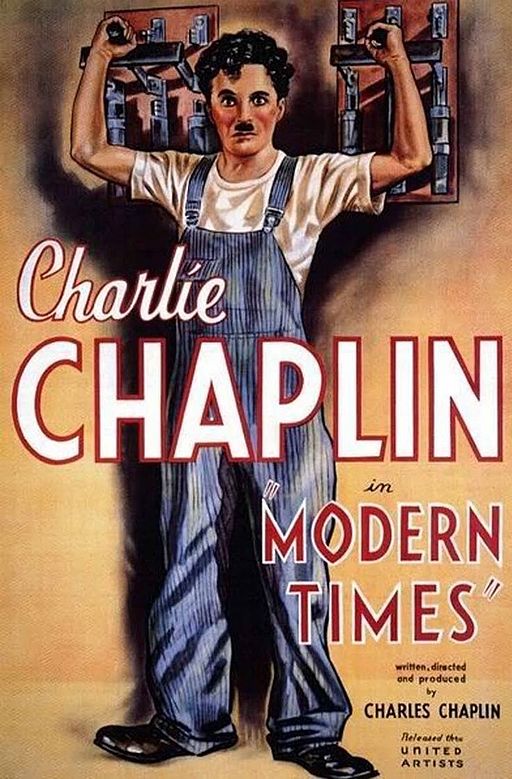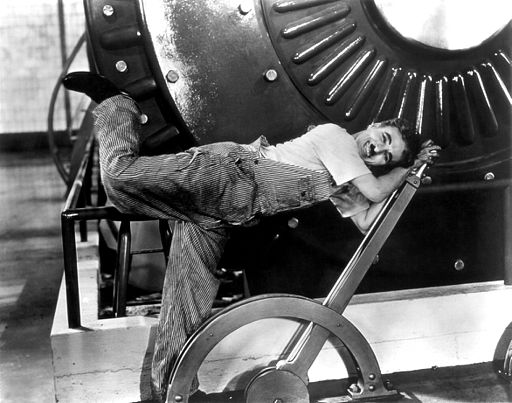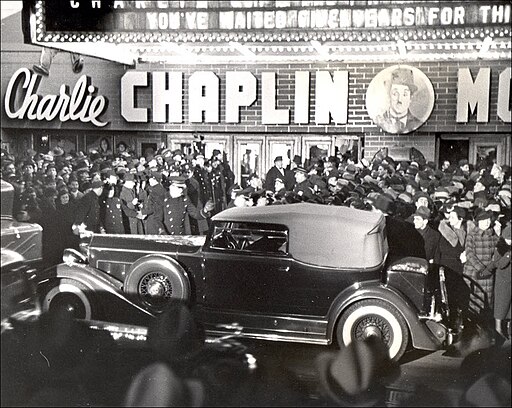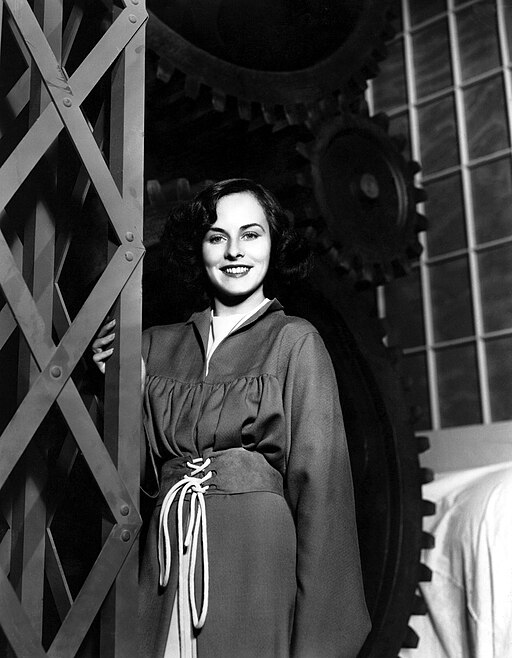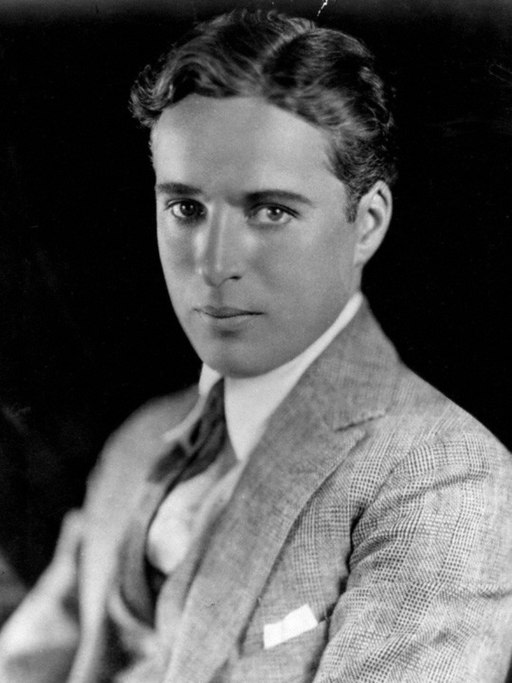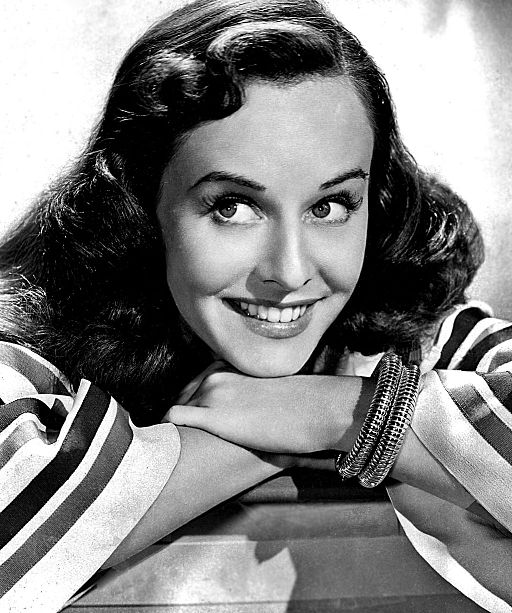Modern Times - 1936
back| Released by | United Artists |
| Director | Charlie Chaplin |
| Producer | Charlie Chaplin |
| Script | Charlie Chaplin |
| Cinematography | Roland Totheroh and Ira H. Morgan |
| Music by | Charlie Chaplin with assistance from Alfred Newman |
| Running time | 87 minutes |
| Film budget | $1.5 million |
| Box office sales | $5 million |
| Main cast | Charlie Chaplin - Paulette Goddard - Henry Bergman - Tiny Sandford - Chester Conklin |
Modern Times
A poignant reflection on industrialization and its impact on human life
"Modern Times" is often celebrated for its blend of slapstick comedy and poignant social commentary, particularly in its depiction of the struggles of the working class during the Great Depression.
Charlie Chaplin's performance as the iconic Tramp, in his last appearance in this role, and the film's innovative use of sound (though still primarily a silent film) make it a landmark in cinema history.
Related
Modern Times – 1936
Overview and Analysis of this Iconic Movie
"Modern Times" is a pivotal film in the history of cinema, both for its artistic innovation and its social commentary.
Summary
Setting and Context: "Modern Times" is set against the backdrop of the Great Depression, an era marked by economic hardship, mass unemployment, and the rise of industrial automation.
Plot: The film opens in a factory where Charlie Chaplin's character, the Tramp, works on an assembly line. He struggles with the monotonous and demanding work, leading to a nervous breakdown. After recovering in a hospital, the Tramp is mistakenly arrested as a communist leader during a protest and is sent to jail. In prison, he accidentally stops a jailbreak, earning him special treatment and an early release.
Upon release, he meets a young woman, the Gamin (played by Paulette Goddard), who is struggling to survive with her two younger sisters after the death of their father. The Tramp and the Gamin dream of a better life and make various attempts to find work. However, their efforts are thwarted by the challenging economic conditions and the Tramp's continuous run-ins with the law.
Eventually, the couple decides to leave the city in search of a better life, ending the film with a sense of hope and resilience as they walk down the road together.
Analysis
Themes and Commentary:
- Industrialization and Dehumanization: One of the film's central themes is the dehumanizing effects of industrialization. The iconic scene where the Tramp is literally fed into and then regurgitated by the factory machinery serves as a powerful metaphor for how workers were treated as mere cogs in the industrial machine.
- Economic Inequality: The film reflects on the disparities between the working class and the wealthy, highlighting the struggles of the average person during the Great Depression.
- Resilience and Hope: Despite the hardships faced by the characters, the film concludes on an optimistic note, suggesting that hope and resilience are vital for survival.
Techniques and Innovations:
- Blend of Sound and Silence: "Modern Times" was made during the transition from silent films to talkies. Chaplin ingeniously combines silent film elements with sound effects and voices, but notably, the Tramp's character remains silent, communicating through mime and expression.
- Comedy and Pathos: The film masterfully blends slapstick comedy with poignant emotional moments, a hallmark of Chaplin's work. This blend allows the film to deliver its social commentary in a way that is engaging and accessible.
Legacy: "Modern Times" is often regarded as one of Chaplin's greatest works, a testament to his genius as a filmmaker and his ability to convey deep social messages through the medium of comedy. The film's themes remain relevant, resonating with modern audiences and offering insight into the challenges of the early 20th century.
Factory Scene from Modern Times:
Full Cast of “Modern Times”:
- Charlie Chaplin as The Little Tramp (a factory worker)
- Paulette Goddard as Ellen Peterson (The Gamin)
- Henry Bergman as the Café Proprietor
- Tiny Sandford as Big Bill
- Chester Conklin as Mechanic
- Hank Mann as Burglar
- Stanley Blystone as Gamin's Father
- Al Ernest Garcia as President of the Electro Steel Corp.
- Richard Alexander as Cellmate
- Cecil Reynolds as Minister
- Mira McKinney as Minister's Wife
- Murdock MacQuarrie as J. Widdecombe Billows
- Wilfred Lucas as Juvenile Officer
- Edward LeSaint as Sheriff Couler
- Fred Malatesta as Café Head Waiter
- Sammy Stein as Turbine Operator
- Juana Sutton as Woman in Jail
- Ted Oliver as Prison Guard
- Norman Ainsley as Mechanic
Analysis of the Direction of Charlie Chaplin:
Charlie Chaplin's direction in "Modern Times" is a masterful blend of comedy, social commentary, and cinematic technique, reflecting his genius and vision as a filmmaker. Here's an analysis of his direction in the film:
Silent Film Techniques in a Sound Era:
- "Modern Times" was created during the transition from silent to sound films. Chaplin chose to retain elements of silent cinema, like minimal dialogue and expressive physical comedy. This choice was not just a nod to his roots but also a way to universalize the film's appeal, transcending language barriers.
- The film's sound is used selectively and innovatively — sound effects and machine noises are prominent, but the human voice is minimal, except in songs and background voices.
Physical Comedy and Expression:
- Chaplin was a master of physical comedy, and "Modern Times" showcases this brilliantly. His movements are balletic and expressive, conveying emotions and narrative without needing words.
- The Tramp character, with his distinct walk and mannerisms, is a perfect vehicle for this physical storytelling.
Social and Economic Commentary:
Chaplin's direction goes beyond entertainment to critique the industrial age's impact on humanity. Scenes in the factory, like the Tramp being fed by a malfunctioning feeding machine, are not just comedic but also a commentary on how workers were treated in the industrial era.
The film's portrayal of poverty, unemployment, and the struggle for survival is poignant, reflecting the harsh realities of the Great Depression.
Humanity and Empathy:
Despite the film's satirical take on society and technology, Chaplin's direction is imbued with warmth and empathy for his characters. The Tramp and the Gamin are portrayed with depth and dignity, making their struggles and dreams relatable.
Innovative Cinematography and Editing:
Chaplin was known for his meticulous approach to filmmaking. In "Modern Times," the cinematography and editing are carefully crafted, with each scene choreographed and shot to maximize its comedic and emotional impact.
The factory scenes, for instance, are a marvel of timing and rhythm, reflecting the mechanization of human beings.
Music as a Narrative Tool:
Chaplin also composed the film's score, which plays a significant role in setting the mood and enhancing the narrative. The music is carefully synchronized with the action, adding another layer to the storytelling.
Influence on Future Filmmaking:
Chaplin’s direction in "Modern Times" influenced not just comedy but filmmaking at large. His ability to blend humor with serious social commentary set a precedent for future films.
His use of visual storytelling, combining physical comedy with poignant emotional moments, has been a significant influence on both comedic and dramatic genres.
Timelessness:
The themes of "Modern Times" remain relevant, resonating with modern audiences. Chaplin’s critique of industrialization, and his empathy for the common man, continue to be pertinent.
Feeding Machine Scene form Modern Times:
Performance of Charlie Chaplin as Tramp:
Charlie Chaplin's portrayal of the Tramp in "Modern Times" is not only iconic but also deeply symbolic, representing a unique blend of comedy, social commentary, and emotional depth. Here's an analysis of his role:
Physical Comedy and Expressiveness:
- The Tramp is characterized by his distinct physicality. Chaplin's movements are precise and expressive, conveying a wide range of emotions and thoughts without the need for dialogue. His walk, with the shuffling feet and the cane twirling, is instantly recognizable and adds to the charm of the character.
- The Tramp's physical comedy is a blend of grace and clumsiness, a balancing act that Chaplin performs masterfully. This physicality not only entertains but also communicates the character's emotions and responses to the world around him.
Empathy and Resilience:
- The Tramp, despite being down on his luck, is immensely empathetic. He often finds himself in trouble or comedic misadventures, but his intentions are always rooted in goodness and a desire to help others, especially the Gamin in "Modern Times."
- His resilience in the face of adversity is another key aspect. No matter how many times he falls, he always gets up, dusts himself off, and tries again, often with a smile. This resilience makes him an enduring symbol of hope and perseverance.
The Everyman in the Industrial Age:
- The Tramp in "Modern Times" represents the common man during the Great Depression and the industrial era. His struggles with the dehumanizing aspects of factory work, his battle against poverty, and his run-ins with the law are reflective of the experiences of many during this period.
- His character is a critique of industrialization and its impact on individuals. The scenes where he struggles to keep up with the assembly line or is literally swallowed by the machinery are powerful metaphors for the loss of individuality and humanity in the industrial process.
- The Tramp’s continuous conflict with societal norms and expectations, often landing him in comedic yet challenging situations, is a subtle critique of the rigid and often unforgiving nature of modern society.
- His interactions with various elements of society, from law enforcement to the working class, highlight the disparities and injustices of the era.
Enduring Appeal:
- The Tramp character, especially as portrayed in "Modern Times," has an enduring appeal due to its universal themes and Chaplin's timeless performance. His struggles and joys resonate with audiences across different eras.
- The character's silent-film style in a sound era adds to his charm, making him accessible and relatable to a global audience.
Influence on Film and Culture:
- Chaplin's portrayal of the Tramp has had a lasting impact on film and popular culture. The character has influenced not only the genre of comedy but also the portrayal of sympathetic, underdog characters in cinema.
- The Tramp's optimistic outlook, despite adversities, continues to inspire and entertain, making him a symbol of resilience and human spirit.
Notable Quotes of “Modern Times”:
"Modern Times," directed and starred in by Charlie Chaplin, is primarily a silent film, with minimal dialogue. However, it does include some memorable text intertitles and a few spoken lines, particularly notable given the film's transition era from silent to sound cinema. Here are some significant quotes and intertitles from the film:
- Opening Title Card: "Modern Times. A story of industry, of individual enterprise - humanity crusading in the pursuit of happiness."
- Factory Machine Panel: The machine panel in the factory scene has instructions that read, "Hey! Don't stop it! Keep it going!"
- The Gamin's Dialogue: When the Gamin (played by Paulette Goddard) tells the Tramp about her dream of a better life, she says, "We'll get a little place in the country... and live there for the rest of our lives."
- Billboard Quote: The Tramp sees a billboard that reads, "There's no way like the American Way," which ironically comments on his and the Gamin's struggles.
- The Tramp's Singing Nonsense Song: In a unique scene where the Tramp is forced to sing but can't remember the lyrics, he improvises a song with gibberish and comical pantomimes. While there are no intelligible lyrics, this scene is significant as it's one of the few moments where the Tramp's voice is heard.
- Intertitle about the Factory Worker's Plight: An intertitle that reads something along the lines of, "Section 5 - Never a dull moment," which is ironic given the monotonous and grueling nature of factory work depicted.
- Closing Card: The film ends with an optimistic note to the audience, "Buck up - never say die! We'll get along."
Awards and Recognition:
"Modern Times," directed by and starring Charlie Chaplin, is a landmark film in cinema history. Despite its critical acclaim and lasting influence, it's interesting to note that the film did not receive a wide array of awards and nominations at the time of its release, largely because it was released during an era when the film industry's award systems, like the Oscars, were still in their infancy. Additionally, Chaplin's films were often seen as outside the mainstream Hollywood system, which may have influenced their recognition during that period.
However, the film has received retrospective recognition and has been honored in various ways over the years:
- National Film Registry: In 1989, "Modern Times" was selected for preservation in the United States National Film Registry by the Library of Congress as being "culturally, historically, or aesthetically significant."
- AFI's 100 Years... 100 Movies: The American Film Institute (AFI) has honored "Modern Times" in several of its lists. It was ranked No. 78 in the original 1998 version of AFI's 100 Years... 100 Movies and No. 81 in the 10th Anniversary Edition in 2007.
- AFI's 100 Years... 100 Laughs: The film was ranked No. 33 on AFI's 100 Years... 100 Laughs list, which celebrates the top 100 comedy films in American cinema.
- International Recognition: Internationally, "Modern Times" has been recognized in various film polls and retrospectives for its significance and influence.
- Cultural Impact Awards: While not formal awards, the film has been acknowledged in numerous cultural and film history retrospectives for its impact on cinema and society.

